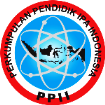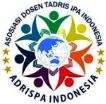Metacognition and Self-System Among Biology Education Undergraduates at Islamic University of Riau
Abstract
Metacognition and the self-system are critical components influencing an individual's learning success. The ability to reflect on and regulate one’s learning processes must be accurately identified and assessed to support instructional planning that enhances these skills. This descriptive study aims to examine the metacognitive abilities and self-system of fifth-semester students enrolled in the Biology Education Study Program at the Islamic University of Riau. Utilizing a survey method, data were collected from a sample of 30 students, consisting of 6 males and 24 females. The instrument, a questionnaire based on Marzano’s Taxonomy and comprising three indicators per variable, was validated through expert review. Data were analyzed using percentage-based categorization and further examined through a Pearson product-moment correlation test via SPSS 22. Results indicated that all metacognitive indicators fell into the high category, with clarity monitoring achieving the highest score (80.27%) and process monitoring the lowest (77.87%). For the self-system, examining importance and emotional response were categorized as high, while efficacy was rated moderate. A significant positive correlation was found between metacognition and the self-system (r = 0.536), with the regression equation Y = 36.662 + 0.478X. These findings suggest that students exhibit high levels of both metacognitive and self-system abilities, which are significantly interrelated.
Keywords: biology education, metacognitive, self-system, undergraduate
Full Text:
PDFReferences
Abedini, Y. (2022). Metacognition as A Core Skill For Wise Decision-Making in Higher Education: Investigating Gender Differences. Journal of Applied Research in Higher Education, 14(2), 886–900. https://doi.org/10.1108/JARHE-11-2020-0400
Aisyah, S., & Ridlo, S. (2015). Pengaruh Strategi Pembelajaran Jigsaw dan Problem Based Learning Terhadap Skor Keterampilan Metakognisi Siswa pada Mata Peajaran Biologi. Unnes Journal of Biology Education, 4(1), 50229. http://journal.unnes.ac.id/sju/index.php/ujbe
Antika, L. T., Sukron, S., Haikal, M., & Farthir, A. (2022). Metacognitive and Creative Thinking Skills: A post-covid-19 correlational study. 7(2), 264–275.
Aziz, A., & Siswanto, K. A. P. (2018). Hubungan antara self regulated learning dengan kematangan karir pada siswa SMA. Analitika: Jurnal Magister Psikologi UMA, 10(1), 7-13.
Az-Zahra, R., Rusdi, R., & Ristanto, R. H. (2021). Metacognitive, Critical Thinking, and Concept Understanding of Motion Systems: A Correlational Study. Bioedukasi: Jurnal Pendidikan Biologi, 14(2), 156. https://doi.org/10.20961/bioedukasi-uns.v14i2.52972
Budiman, W. N., & Marianti, A. (2020a). The Effectiveness of The Group Investigation Model with a Jelajah Alam Sekitar Approach to The Metacognitive Skills of High School Students in Animalia Material. Journal of Biology Education, 9(3), 306–314.
Budiman, W. N., & Marianti, A. (2020b). The Effectiveness of The Group Investigation Model with a Jelajah Alam Sekitar Approach to The Metacognitive Skills of High School Students in Animalia Material. Journal of Biology Education, 9(3), 306–314.
Dewika, A., Rahmi, F., & Maputra, Y. (2021). Metakognisi dan Kaitannya dengan Self Efficacy Siswa. Jurnal Pendidikan Dasar dan Menengah (Dikdasmen), 1(2), 48–55. https://doi.org/10.31960/dikdasmen-v1i2-1394
Ellis, D. M., & Hudson, J. L. (2011). Test of the Metacognitive Model of Generalized Anxiety Disorder in Anxiety-Disordered Adolescents. Journal of Experimental Psychopathology, 2(1), 28–43. https://doi.org/10.5127/jep.011910
Eriawati, E. (2015). Aplikasi Keterampilan Metakognitif dalam Pembelajaran Ekosistem di MAN Rukoh. BIOTIK: Jurnal Ilmiah Biologi Teknologi dan Kependidikan, 1(1), 60. https://doi.org/10.22373/biotik.v1i1.214
Febrina, E. (2019). Metakognisi sebagai Keterampilan Berfikir Tingkat Tinggi pada Pembelajaran Abad 21. Jurnal Ilmu Pendidikan Dan Pengajaran, 6(1).
Idris, T., Rahmat, A., & Hidayat, T. (2024). The Trend of Metacognition Research Trend in Learning Biology in Indonesia. KnE Social Sciences. https://doi.org/10.18502/kss.v9i13.15911
Johnson, D. P., & Whisman, M. A. (2013). Gender differences in rumination: A meta-analysis. Personality and Individual Differences, 55(4), 367–374. https://doi.org/10.1016/j.paid.2013.03.019
Khairunnisa, H., Azrai, E. P., & Ristanto, R. H. (2022). The Correlation Between Critical Thinking Skills with Student Metacognitive Skills in Ecosystem Material. Journal Of Biology Education, 5(2), 130. https://doi.org/10.21043/jobe.v5i2.12336
Kusuma, A. S., & Baskara, Z. W. (2023). Hubungan Self-Regulation dengan Metacognitive Awareness Mahasiswa Pada Pembelajaran Berbasis Portofolio. Jurnal Ilmiah Profesi Pendidikan, 8(1b), 987–994. https://doi.org/10.29303/jipp.v8i1b.1307
Lestari, H. N., Suganda, O., & Widiantie, R. (2017). Hubungan antara Pengetahuan Metakognitif Dengan Kemampuan Pemecahan Masalah Melalui Model Problem Based Learning (Pbl) Pada Konsep Pencemaran Lingkungan Di Kelas X. Quagga : Jurnal Pendidikan Dan Biologi, 9(02), 27. https://doi.org/10.25134/quagga.v9i02.745
Lutfi, A. (2019). Pengaruh Efikasi Diri Terhadap Kematangan Karir Siswa dikelas XII Di SMK N 6 Yogyakarta. Jurnal Riset Mahasiswa Bimbingan Dan Konseling, 5(5).
Marnola, I., Degeng, I. N. S., Ulfa, S., & Praherdhiono, H. (2024). Project Based Learning in Online Discussion Forums and Self-Regulated Learning. Al-Hayat: Journal of Islamic Education, 8(2), 724. https://doi.org/10.35723/ajie.v8i2.607
Marzano, R. J., & Kendall, J. S. (2008). Designing & Assessing Educational Objectives: Applying the New Taxonomy. In Corwin Press.
Marzano, Robert. J., Pickering, D., & Mctighe, J. (1993). Assessing Student Outccomes: Performance Assessment Using the Dimension of Learning Model. Mid-Continent Regional Education Lab. Aurora, Co.
McWilliams, A., Bibby, H., Steinbeis, N., David, A. S., & Fleming, S. M. (2023). Age-related Decreases in Global Metacognition Are Independent Of Local Metacognition And Task Performance. Cognition, 235. https://doi.org/10.1016/j.cognition.2023.105389
Molin, F., Haelermans, C., Cabus, S., & Groot, W. (2020). The Effect of Feedback on Metacognition - A Randomized Experiment Using Polling Technology. Computers and Education, 152. https://doi.org/10.1016/j.compedu.2020.103885
Palmer, E. C., David, A. S., & Fleming, S. M. (2014). Effects of age on metacognitive efficiency. Consciousness and Cognition, 28(1), 151–160. https://doi.org/10.1016/j.concog.2014.06.007
Pratiwi, S. E. (2020). Manajemen Percepatan Pembelajaran Peserta didik (Studi Kasus di MAN 2 Ponorogo). etheses.iainponorogo.ac.id. http://etheses.iainponorogo.ac.id/id/eprint/10031
Purwaningsih, S. D. A., & Mubarok, I. (2021). Jurnal of Biology Education Biological Science Curriculum Study 5E Model Based on Multiple Representations in Ecosystem Materials on Problem Solving and Metacognitive Abilities. Journal of Biology Education, 10(1), 63–69. http://journal.unnes.ac.id/sju/index.php/ujbe%0AThe
Putri, windha A., Prasetyo, A. P. B., & Supriyanto. (2014). Unnes Journal of Biology Education. Journal Og Biology Education, 3(3), 319–329.
Rahayu, I. P., Sukaesih, S., & B, F. P. M. H. (2020). The Effectiveness of Metacognition Strategy by Snowball Throwing on Student’ s Metacognition Ability and Learning Outcomes on Reproduction System Material. Journal of Biology Education, 9(2), 86–91.
Riyanti, A. I., Ngadiman, N., & Hamidi, N. (2019). Pengaruh Kesadaran Metakognisi dan Motivasi Belajar Terhadap Hasil Belajar Siswa. Jurnal Tata Arta, 1.
Septina, E. P., Marianti, A., & Widiatningrum, T. (2018). The Use of Science Reflective Journal Writing by JAS Approach to Train Students Metacognitive Ability. Journal of Biology Education, 7(3), 244–252. https://doi.org/10.15294/jbe.v7i3.24260
Septiyana, K., Prasetyo, A. P., & Chrisjanti, W. (2013). Jurnal belajar sebagai strategi berpikir metakognitif pada pembelajaran sistem imunitas. Unnes Journal of Biology Education, 2(1), 1–9.
Shekh-Abed, A. (2024). Metacognitive self-knowledge and cognitive skills in project-based learning of high school electronics students. European Journal of Engineering Education. https://doi.org/10.1080/03043797.2024.2374479
Siegel, A. L. M., & Castel, A. D. (2019). Age-related Differences in Metacognition for Memory Capacity and Selectivity. Memory, 27(9), 1236–1249. https://doi.org/10.1080/09658211.2019.1645859
Sinaga, N., Octavianty Prasetiyo, H., Psikologi, F., & Pelita Harapan, U. (2023). Learning During The Pandemic: The Role of Metacognition In The Relationship Between Student Autonomy And Student Engagement Of First-Year Students. Jurnal Psibemetika, 16(2), 105–111. https://doi.org/10.30813/psibernetika.v16i2.4655
Tabelak, V., Damayanti, Y., & Mage, M. Y. C. (2024). Hubungan Antara Regulasi Diri dalam Belajar dengan Kematangan Karier Pada Peserta Didik Kelas XI-XII SMAKr Pandhega Jaya Kupang. Wacana Psikokultural, 2(1), 49–58. https://doi.org/10.24246/jwp.v2i1.12547
Windasari, C., Hasanuddin, H., & Hasanuddin, H. (2017a). Pengaruh Model Guided Discovery Terhadap Kesadaran Metakognitif dan Hasil Belajar Kognitif Peserta Didik pada Materi Sistem Reproduksi Manusia di MAS Babun Najah Banda Aceh. BIOTIK: Jurnal Ilmiah Biologi Teknologi Dan Kependidikan, 4(1), 66. https://doi.org/10.22373/biotik.v4i1.1072
Windasari, C., Hasanuddin, H., & Hasanuddin, H. (2017b). Pengaruh Model Guided Discovery Terhadap Kesadaran Metakognitif dan Hasil Belajar Kognitif Peserta Didik pada Materi Sistem Reproduksi Manusia di MAS Babun Najah Banda Aceh. BIOTIK: Jurnal Ilmiah Biologi Teknologi Dan Kependidikan, 4(1), 66. https://doi.org/10.22373/biotik.v4i1.1072
Zimmerman, B. J. (1995). Self-Regulation Involves More Than Metacognition: A Social Cognitive Perspective. Educational Psychologist, 30(4), 217–221. https://doi.org/10.1207/s15326985ep3004_8
Zimmerman, B. J., & Pons, M. M. (1986). Development of a Structured Interview for Assessing Student Use of Self-Regulated Learning Strategies. American Educational Research Journal, 23(4), 614–628. https://doi.org/10.3102/00028312023004614
DOI: http://dx.doi.org/10.24014/jnsi.v8i1.36222
Refbacks
- There are currently no refbacks.

Journal of Natural Science and Integration
E-ISSN: 2620-5092 P-ISSN: 2620-4967
Published By:
Department of Science Education, Faculty of Education and Teacher Training,
State Islamic University of Sultan Syarif Kasim Riau, Indonesia
Mailing Address:
Jl. H.R Soebrantas Km. 15 No. 155
Kelurahan Simpang Baru
Kecamatan Tuah Madani, Pekanbaru, Riau, Indonesia
Email: jnsi.tadrisipa@uin-suska.ac.id
Indexed By:
Journal of Natural Science and Integration is licensed under a Creative Commons Attribution 4.0 International License.


_-_Copyy2.png)






.jpg)
.png)
.jpg)
.jpg)




